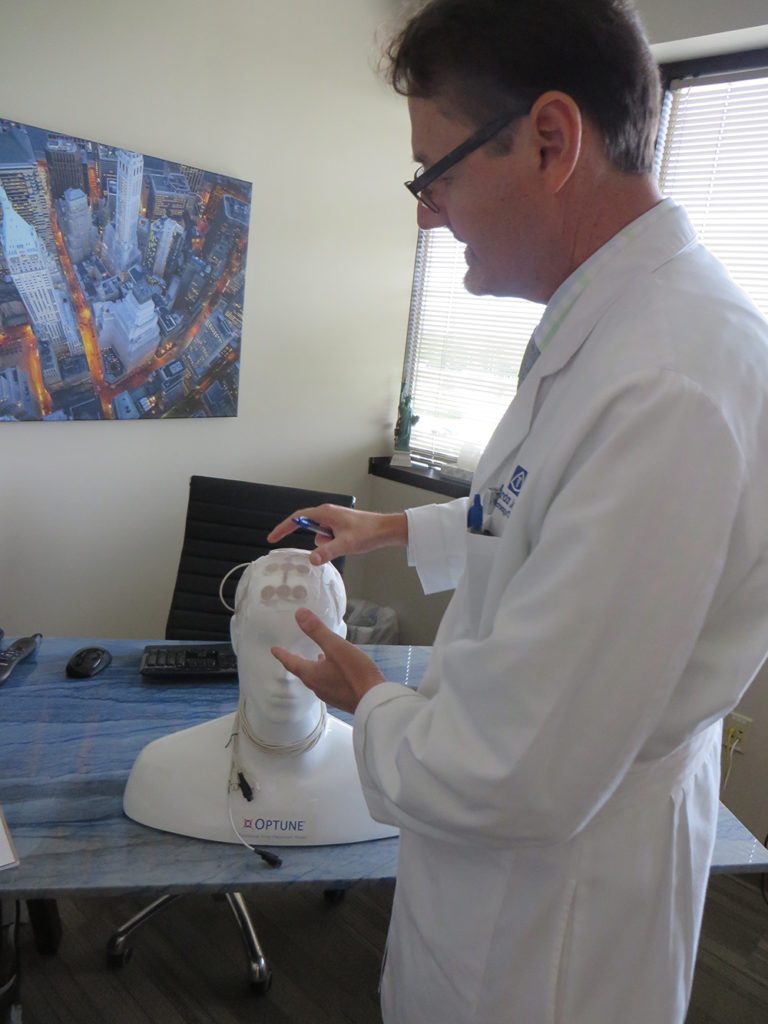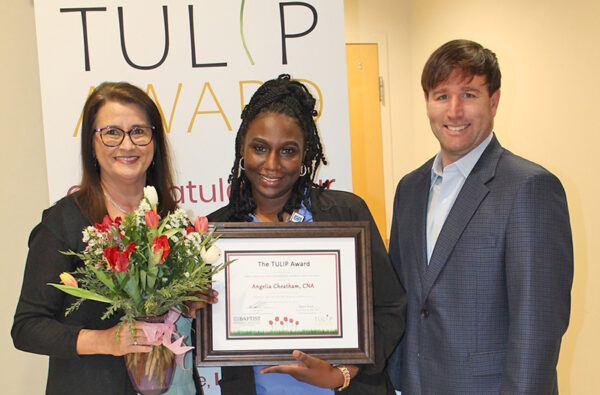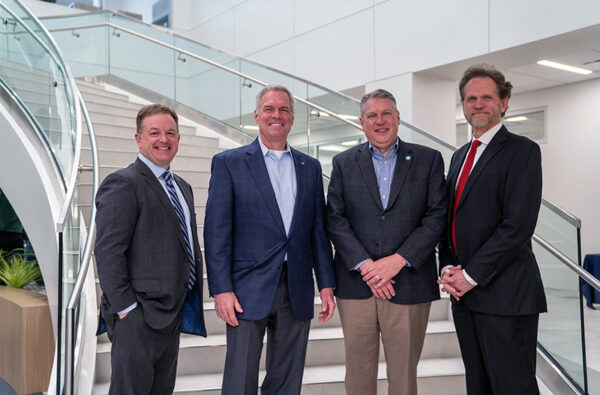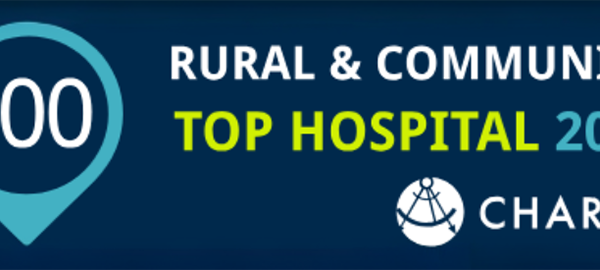Baptist Cancer Center oncologist now offering innovative treatment for deadly brain cancer
Doctors like Dr. Alex Jankov, a medical oncologist with the Baptist Cancer Center, know the gravity of a glioblastoma diagnosis. A rare brain cancer, GBM, also called glioblastoma multiforme, is the most common type of primary brain cancer in adults. Approximately 12,500 new cases are diagnosed in the United States each year.
Dr. Jankov’s own aunt died of GBM in 1975. “Even decades later, we’re faced with the same fatal prognosis.”
Until this year, the standard of care involved surgery, chemotherapy and radiation—a similar regimen to many cancers. On April 2, 2017, however, the final results of a pivotal trial study called EF-14 showed clear benefits. Subsequently, the FDA added a fourth treatment option called Tumor Treating Fields (TTFields), low-intensity electric fields that can potentially slow or stop cell division leading to cell death. More importantly, the FDA also defined a new standard of care at the American Association of Cancer Research conference.
TTFields are employed specifically in combination with standard chemotherapy, temozolomide (TMZ), and in newly diagnosed and recurrent cases of GBM.
For Dr. Jankov, this April news holds even greater significance. On May 10, Dr. Jankov became the first Baptist Cancer Center medical oncologist officially certified to prescribe a novel treatment involving electrodes called Optune, a wearable, portable medical device that is classified as durable medical equipment by the FDA.
Optune creates TTFields, and because TTFields do not enter the bloodstream like a drug, they do not significantly increase side effects for newly diagnosed patients. In clinical trials, the most common side effects were scalp irritation from device use and headache.
The procedure is relatively straight forward. Optune patients wear electrodes on the skull and carry a portable battery pack that weighs less than 3 pounds. Studies so far indicate that wearing the electrodes 18 hours a day produces the best results. “While studies aren’t complete if wearing it more is better, we know with certainly wearing it less than 18 hours isn’t optimal treatment,” said Dr. Jankov.
Optune is approved for patients 22 years of age or older. For newly diagnosed patients, Optune is used with TMZ after surgery and radiation. For patients with tumor recurrence, it can be used alone when surgery and radiation treatment options have been exhausted. In a clinical trial, adding Optune to TMZ was proven to delay GBM tumor growth and extend survival in newly diagnosed patients compared with TMZ alone.
The FDA approval comes following the findings of a randomized, multi-center, phase III clinical trial that showed impressive results. Approximately half of the people who used Optune with TMZ were alive at two years or longer, compared to 32 percent who were on TMZ alone. In a long-term follow-up of 695 people in the same study, the median survival and median progression-free survival were consistent. Survival at five years was 13 percent for Optune + TMZ vs. 5 percent for TMZ alone.
Dr. Jankov, along with Semmes Murphey colleagues, participated in a two-hour certification training. He now works with patients who are potential candidates for Optune. “We work to help ensure the proper placement of the electrodes after mapping the patient’s skull,” said Dr. Jankov. After the initial placement, a patient is then equipped to manage the device under medical supervision.
Most important, Dr. Jankov is eager to simply spread the word for patients who may be recently diagnosed or searching for treatment options. “With the prolongation in survival by almost five months, we are excited to see the first major improvement since the early 2000s. It is extremely important that patients know they have another option, and I can evaluate them for Optune locally.”
For patients interested in talking with Dr. Jankov, please contact his office at 901-747-9081 or Aleksandar.jankov@bmg.md






